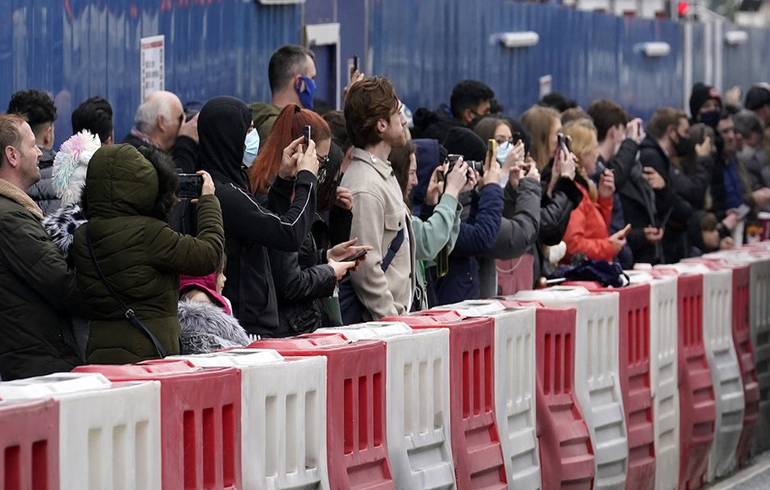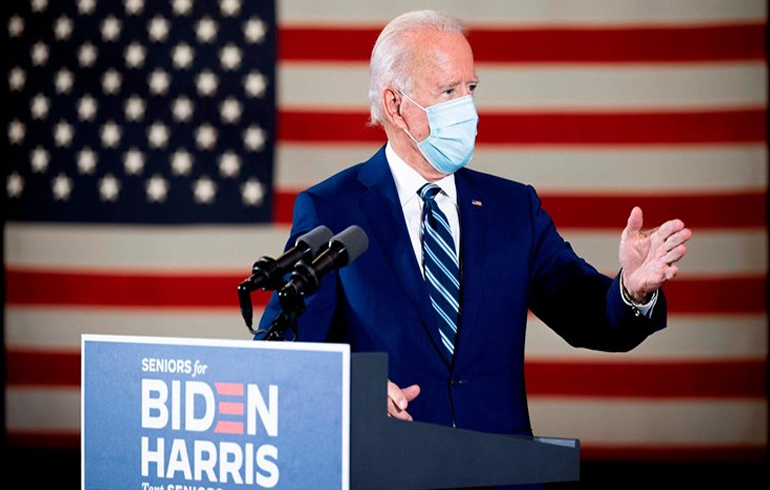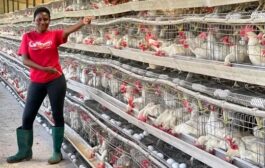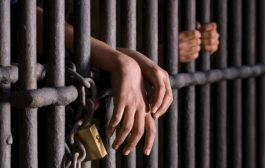The new three-tier system of Covid-19 restrictions has begun in England.
Most of the country is in the lowest tier – medium – but millions of people in the North and the Midlands face extra curbs on households mixing.
The Liverpool region is the only area to be under the toughest rules, with pubs and bars not serving meals closed.
Government health officials are due to meet later to discuss the possibility of Greater Manchester, Lancashire and some other areas joining the top tier.
Hours before the top tier rules came into force in Liverpool, police were forced to disperse large crowds in the city.
Meanwhile, Northern Ireland is set to extend the half-term holidays for schools, from Monday, alongside other new measures aimed at curbing the spread of the virus.
And in Wales a short circuit breaker lockdown is being “actively considered” by the government.
The Labour Mayor of Greater Manchester, Andy Burnham, tweeted that he had not spoken with the government about new restrictions since Friday, claiming pressure was being “piled on via media briefings”.
He said he would set out, later today, “why the current Tier 3 [top tier] proposal is fundamentally flawed and why we won’t accept it”.
It comes after Labour leader Sir Keir Starmer called for a two to three-week “circuit-breaker” lockdown in England to bring the infection rate under control.
The new three-tier system sees every area of England classed as being on medium, high or very high alert.
Areas on medium alert are subject to the national restrictions currently in force, including the rule of six on indoor and outdoor gatherings and the 22:00 closing time for pubs, bars and restaurants.
In addition to these restrictions, in areas on high alert – including north-east England, much of the North West and parts of the Midlands, along with West and South Yorkshire – different households are not allowed to mix indoors.
Areas on very high alert face extra curbs, with different households banned from mixing indoors or outdoors in hospitality venues or private gardens.
Pubs and bars will be closed unless they are serving substantial meals and there is also guidance against travelling in and out of the area.
Further restrictions may be agreed for particular regions in the top tier and in the Liverpool City Region gyms, leisure centres, betting shops and casinos will also close.
Prime Minister Boris Johnson said the system was a “moderate” and “balanced” approach to saving lives while trying to protect the economy.
But MPs in Liverpool said the city “risks being dragged back to the 1980s” without proper financial support alongside the new restrictions.
Parliament has approved the legislation to write a new three-tier system into law, but 42 Tory MPs rebelled in a vote to express their disapproval of the 22:00 closing time for pubs and restaurants in England.
Meanwhile, the Scottish government is to implement its own three-tier framework of restrictions later in October. In the meantime, pubs and restaurants in Scotland’s central belt, including Edinburgh and Glasgow, were closed on Friday until 25 October as part of a package of short-term measures.
In Northern Ireland, hospitality businesses will only be allowed to offer takeaway and delivery services for four weeks from Friday, alongside a raft of new restrictions.
Deputy First Minister Michelle O’Neill said in a tweet that the executive “will do everything we possibly can to make sure there are protections in place for businesses, workers and families”.
And in Wales, the Welsh Government is considering bringing in deeper lockdown measures over a short period of time, including closing pubs and restaurants during half term.
The government sees its three-tier system of localised restrictions as striking a balance between fighting the virus and protecting the economy.
However, Sir Keir Starmer’s decision to back a much tougher England-wide temporary lockdown does mean there is now an alternative plan on the table. And it is a plan that came recommended by the government’s own scientists.
Downing Street has not ruled out a “circuit break” completely – to do so, it maintains, would be irresponsible. But it has been very clear that it does not want to get there.
A senior government source accused Labour of playing politics but the move will increase the pressure on Mr Johnson to show that his alternative works – and does so quickly.
He is likely to have the backing of his own MPs – many of whom are not keen to go further for now at least. The former minister Andrew Mitchell – who has voiced criticism in recent days – said the three tier system must be given time to show results.
Speaking at a press conference on Tuesday evening, Sir Keir said current measures to curb the spread of coronavirus were not working and another course was needed to prevent a “sleepwalk into a long and bleak winter”.
He added his proposal for a short national lockdown would not mean schools closing but it should take place across half-term to “minimise disruption”.
However, he said it would mean all pubs, bars and restaurants would be closed and compensated.
In addition, Sir Keir said:
Only essential work and travel would be allowed and everyone who can work from home should do so
Non-essential offices should be closed
Household mixing should be restricted to one household except for those who have formed support bubbles
UK Parliament should “move to remote working”
His comments came after documents revealed government scientific advisers called for such action three weeks ago.
Sir Keir said his proposals were in line with the recommendations from the Scientific Advisory Group for Emergencies (Sage).
On Monday, a further 17,234 coronavirus cases were recorded in the UK, while 143 more people have died within 28 days of testing positive for the virus.
Source: BBC




















































